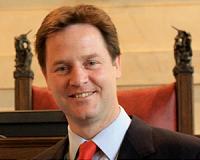| . |  |
. |
Beijing (AFP) April 28, 2010 France and China Wednesday pledged to draw a line under past tensions over Tibet and breathe new life into their relationship by working together on issues from global monetary policy to Iran. President Nicolas Sarkozy and his host Hu Jintao made the comments following talks in Beijing that signalled they had moved past the Tibet row, which peaked when Sarkozy met the Dalai Lama, Tibet's exiled spiritual leader, in 2008. "President Sarkozy's visit to China has opened a new page in Sino-French relations," Hu said in a joint media appearance with the French leader. "We should hold close consultations and strengthen political coordination on the reform of the international monetary system" climate change and other major issues, state television quoted Hu saying in their closed-door talks. The French leader, making his second state visit to China, told journalists the pair had held "in-depth discussions about the Iranian crisis and the G20" and also said the two sides would work together on global monetary reform. The West has sought Chinese support for tough action on Tehran over its nuclear programme, which some suspect is a cover to develop atomic weapons, and the issue had been expected to be high on Sarkozy's agenda. Beijing has been reluctant to punish Iran, a major trading partner and source of oil, but US Vice President Joe Biden said last week China would back new sanctions, predicting they could be agreed within days. Sarkozy pledged France would work with China -- which has sought greater say for developing countries in world financial affairs -- for a new multipolar system when it assumes the rotating leadership of the G20 from November. "We are going to prepare the French presidency of the G20 well in advance by thinking about a new multipolar monetary order," he told reporters in the Great Hall of the People. "I believe there can be no resumption of economic growth without global stability, and global stability is not possible without the greater involvement of China" on the international stage, Sarkozy said. He refrained from adding to pressure on China over the value of its currency, which critics including the United States say is kept artificially low to boost Chinese exports at the expense of those from other countries. "France's belief is that it is totally unproductive to make accusations against one another. It is far more intelligent to prepare the necessary evolution of the monetary system in the 21st century," he said. "We are going to think and work together." Relations nose-dived in March 2008, just four months after Sarkozy's first state trip to China, when he expressed shock at the security crackdown in the Chinese-ruled region after protests there led to deadly violence. A month later, the Chinese leadership was incensed when pro-Tibetan demonstrators booed and jostled the Olympic flame as it was carried through Paris on its way to the Beijing Games. Tensions peaked with Sarkozy's December 2008 audience with the Dalai Lama -- whom Beijing accuses of seeking independence for his Tibetan homeland -- before easing when Sarkozy met Hu at a G20 summit last year. Sarkozy and his wife, Carla Bruni-Sarkozy, began the three-day visit on Wednesday with a brief stop in the ancient capital of Xi'an, where the couple visited the city's terracotta warriors. The French leader, whose delegation includes several senior ministers, will also meet Premier Wen Jiabao in Beijing before heading to Shanghai on Friday for the start of the World Expo, where he will inaugurate the French pavilion. The French president will mix politics with sightseeing during the trip, with scheduled visits to the Great Wall, the Ming Tombs and the Forbidden City. Agreements on education and a plan to support small businesses are to be signed during the visit, according to French officials. Hu is scheduled to make a state visit to France later this year.
Share This Article With Planet Earth
Related Links Learn about the Superpowers of the 21st Century at SpaceWar.com Learn about nuclear weapons doctrine and defense at SpaceWar.com
 Walker's World: Lone Ranger losing Tonto
Walker's World: Lone Ranger losing TontoWashington (UPI) Apr 26, 2010 Britain's general election has become one of those moments when life imitates art, or at least, when international politics follows a script from the movies. Nick Clegg is the leader of Britain's third party, the long-derided Liberal Democrats, who has electrified the election by leaping forward in the televised debates and opinion polls to be at level pegging with the Conservatives and ... read more |
|
| The content herein, unless otherwise known to be public domain, are Copyright 1995-2010 - SpaceDaily. AFP and UPI Wire Stories are copyright Agence France-Presse and United Press International. ESA Portal Reports are copyright European Space Agency. All NASA sourced material is public domain. Additional copyrights may apply in whole or part to other bona fide parties. Advertising does not imply endorsement,agreement or approval of any opinions, statements or information provided by SpaceDaily on any Web page published or hosted by SpaceDaily. Privacy Statement |